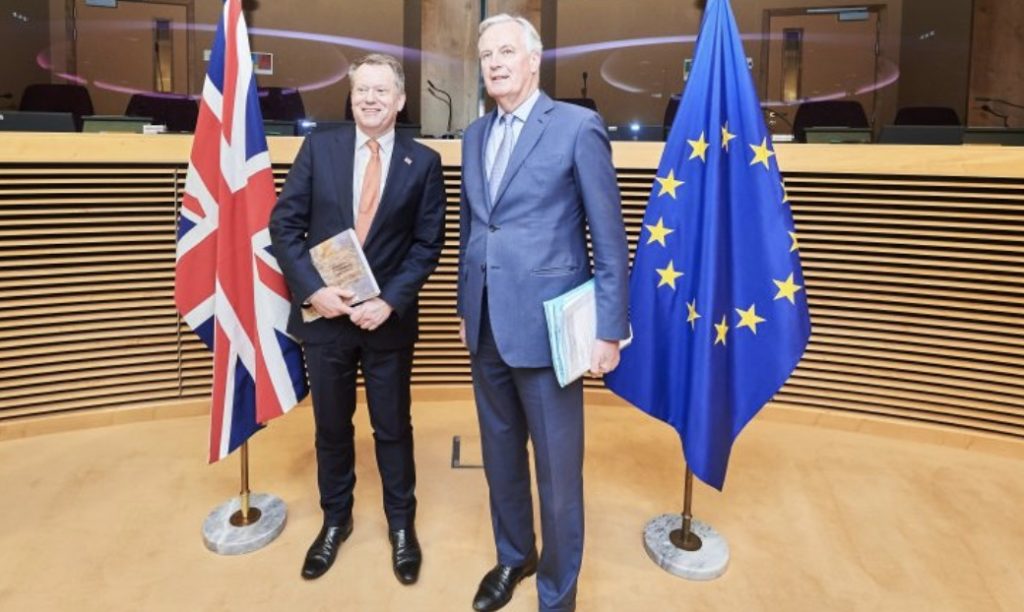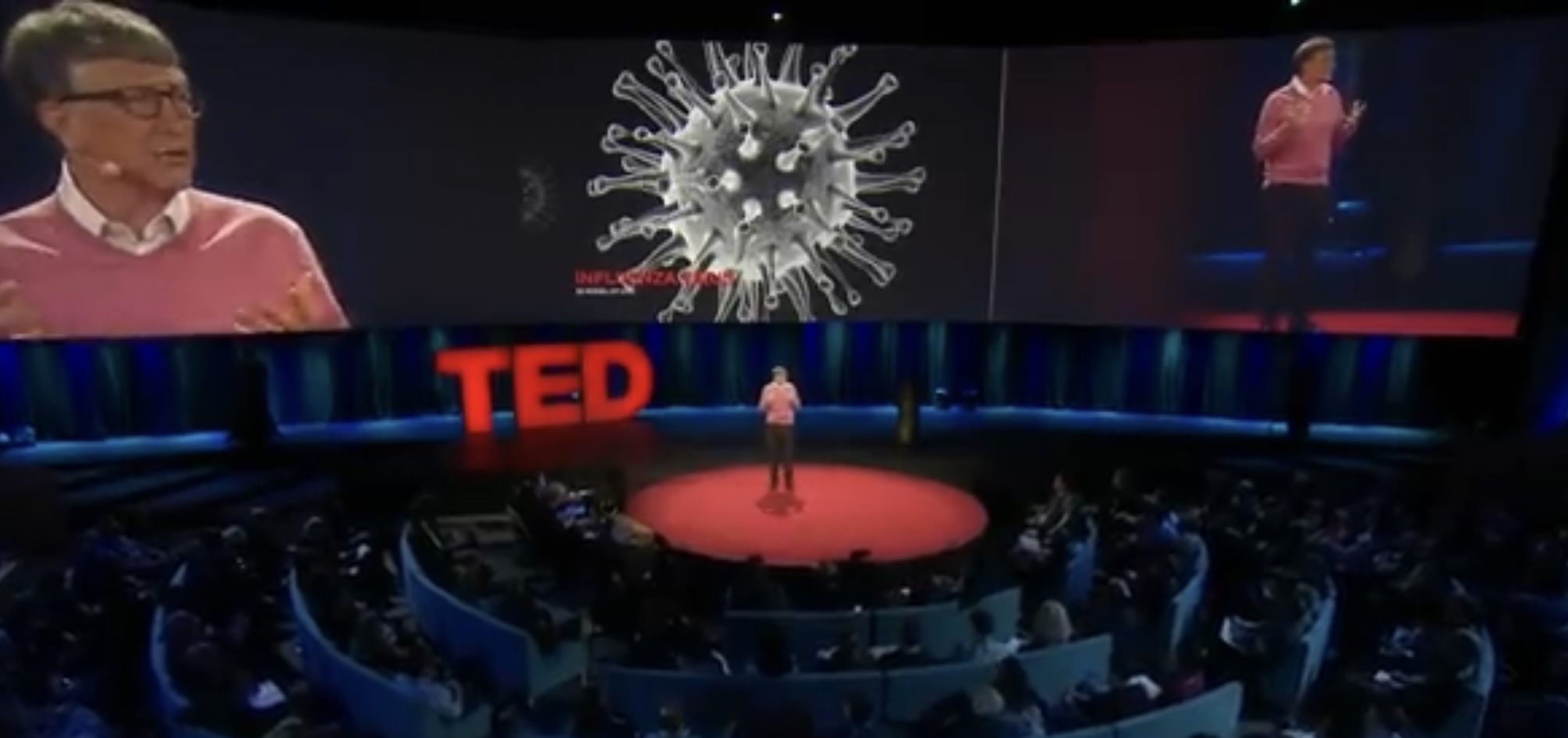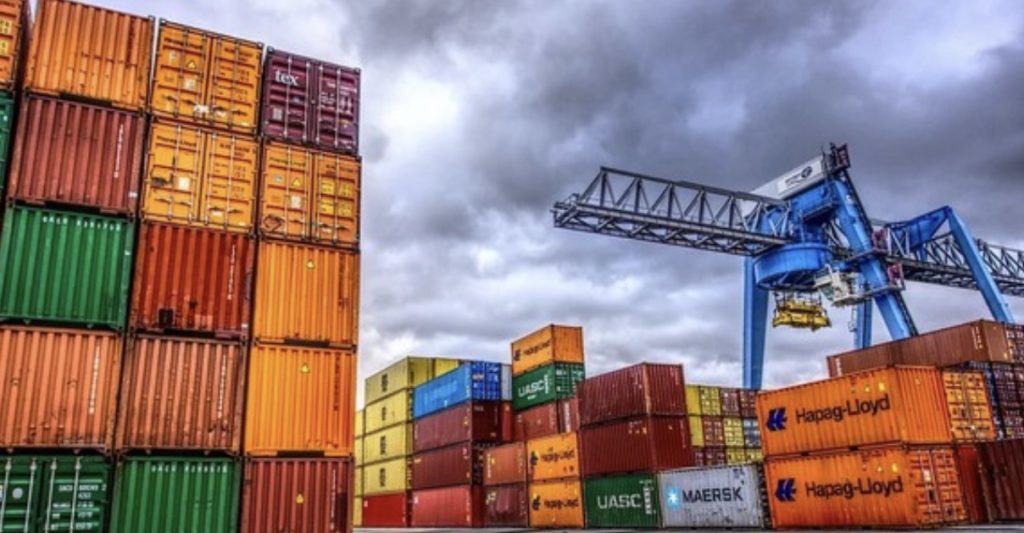Britain and the European Union have exchanged draft legal texts containing their proposals for how relations between the two sides should work after the end of a Brexit transition period on 31 December, a British government spokesman said on Wednesday (18 March).

Britain formally left the bloc on 31 January, but under the terms of an exit agreement most practical aspects of how Britain interacts with the 27 EU member states have remained unchanged.
“This evening the UK and EU have exchanged draft legal texts. We are sharing ours in confidence as a negotiating document, as part of the ongoing negotiating process,” the British government spokesman said.
“Teams will now analyse each other’s texts and we expect further conversations between the teams next week.”
The drafts include a proposed free trade agreement and key annexes, and proposed agreements on aviation safety, air transport and civil nuclear industrieThe coronavirus crisis has raised doubts about whether it was still realistic for the two sides to reach agreement before the 31 December deadline, which was already considered an ambitious goal before the crisis struck.
Prime Minister Boris Johnson said earlier that Brexit was not being discussed much in his Downing Street office at the moment, given the demands of the response to the coronavirus crisis, but he had no intention of moving the deadline.
We didn’t listen then, maybe it is time to start lusten now.
“If anything kills over 10 million people in the next few decades, it’s most likely to be a highly infectious virus rather than a war – not missiles, but microbes,” warned Bill Gates during a TED Talk five years ago.”

“Part of the reason is we have invested a huge amount in nuclear deterrents, but we’ve actually invested very little in a system to stop an epidemic,” he explained.
“We’re not ready for the next epidemic.”
Watch his TED talk here: https://youtu.be/6Af6b_wyiwI
CLECAT, representing the Freight Forwarding and Customs brokerage sector in Europe, calls on the European Commission to take measures related to customs formalities to ensure the flow of essential goods across the EU borders.

As recognised by an EU Emergency Transport Council on 18th March 2020, the COVID-19 outbreak has a major impact on transport which in turn affects the whole EU economy, because of disruptions of supply chains. Keeping cargo flows running is vital for public health and the economy. Customs plays a major role in safeguarding the security of supplies and the integrity of the supply chains. The Freight Forwarding and Customs Brokerage sector, which ensures the fulfilment of Customs formalities jointly with authorities, urgently requires additional measures, support and communication to keep cargo flows runnin

Dominique Willems, CLECAT’s Senior Manager noted: ‘We have written to Commissioner Gentiloni asking to take initiatives towards Customs authorities to encourage them to allow for delayed and other related taxes and payments.’ ‘We have noted that across Europe, governments have announced measures which allow the delayed payment of taxes such as income tax, corporate tax and VAT. Unfortunately, no such measures were announced in relation to Customs duties and other related taxes and payments.’

He continued: ‘our members are also urgently calling for the extension and flexibility in deadlines for Customs procedures and other formalities. Due to long waiting times at external and internal EU borders, reduced capacity for the public and private sector, general disruption in transport and at the same time a major increase of certain goods, deadlines for closure of Customs procedures cannot be met in all cases. The issue is especially pressing in relation to Transit procedures but is also affecting other procedures. If no such action would be taken, additional Customs debts and administrative burden will occur, putting an even heavier strain on supply chains.’
To read the entire letter, click here: CLECAT Letter to EU Commission
Source: CLECAT






You must be logged in to post a comment.